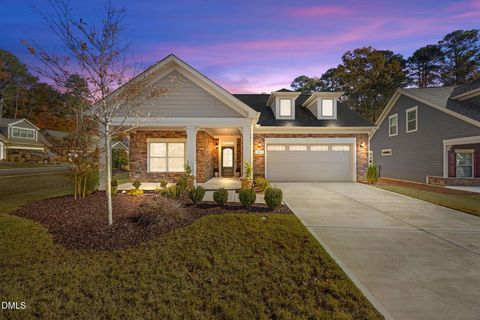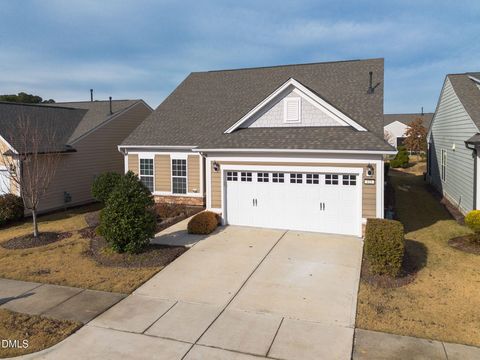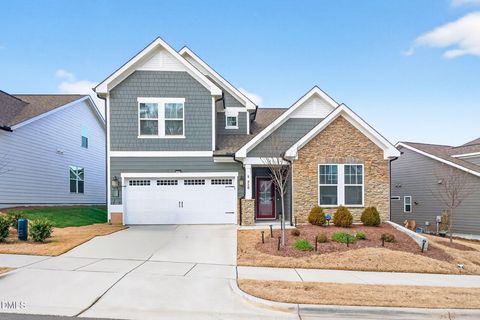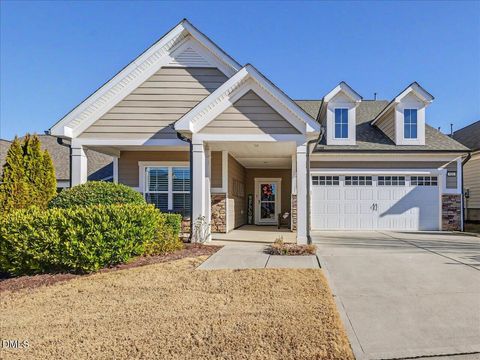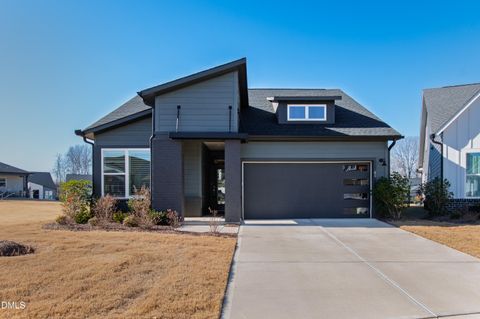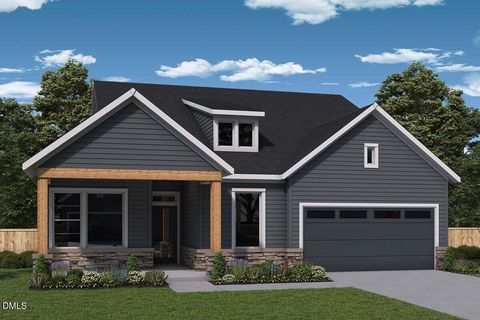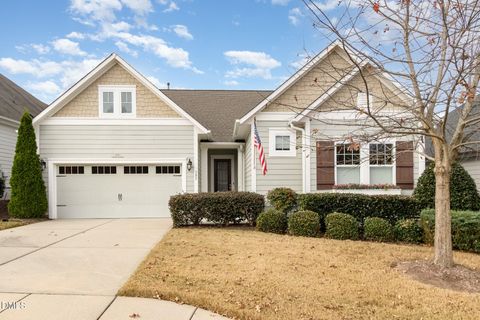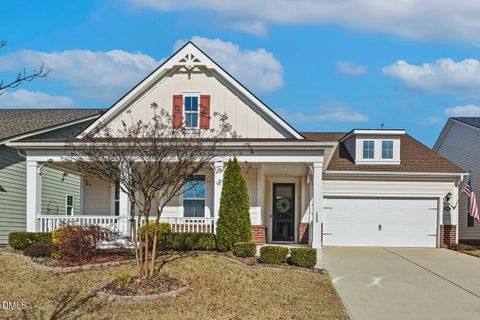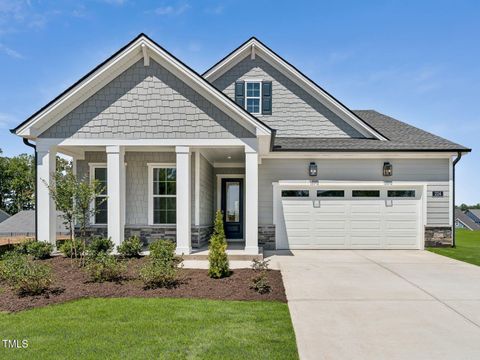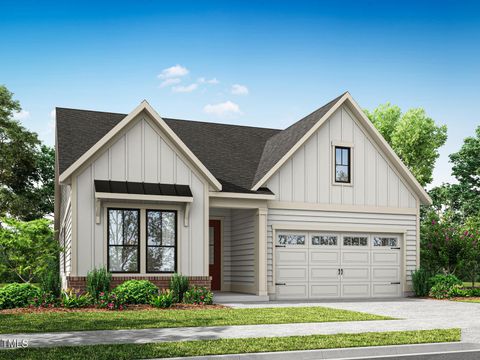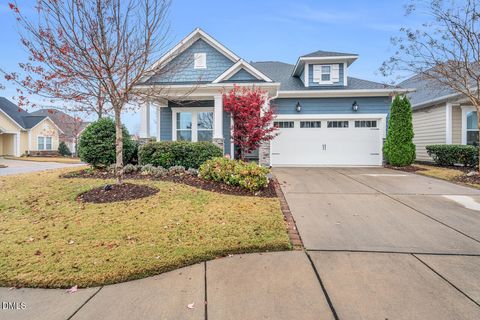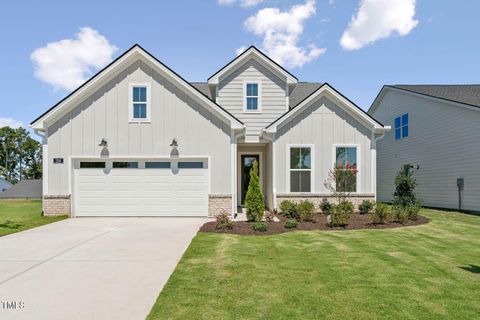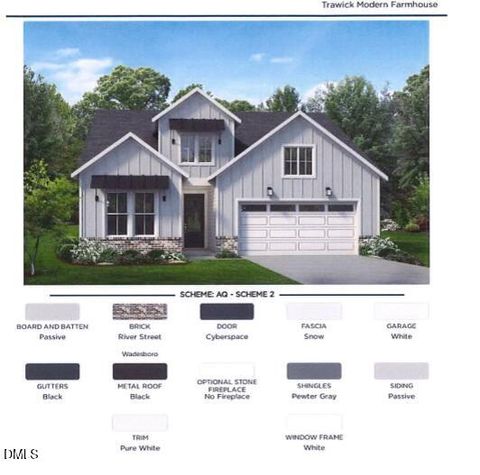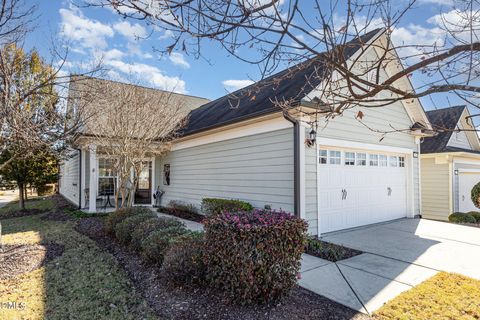Conversion in progress ...
Please wait while we generate your PDF

Ask Amy
Here are my straightforward answers to questions I have received for buying and selling homes in the NC Triangle area.
Answers for over 55 buyers, sellers and downsizers
Dear Amy,
My wife and I have been living in Cary, NC for the last 30 years. While we have loved the area for raising our kids and spending time with our grandkids, it is time for us to downsize and move to a home with lower maintenance. We want to stay within the Triangle NC area to be close to family. What are our options?

As long-time residents enter retirement, many are considering their housing options for this new chapter of life. Here's a look at the various real estate options available to people 65 and better, and for those looking to downsize in the Triangle NC area:
Transitioning to a New Home
Moving into a Smaller House, Townhome, or Condo: Many empty nesters find themselves in large homes with grown children who have moved out. Downsizing to a smaller house, townhome, condo, or patio home can be a wise move as smaller homes offer lower maintenance, reduced utility and mortgage costs, or can be purchased using the proceeds from selling their current home with no new mortgage.
55+ and Active Adult Communities: Active adult and 55+ communities have main level living and social activities integrated, as well as classes and exercise facilities. These communities provide peace of mind with other homeowners who are in the same or similar situation.
Relocating to a Different Community: With retirement comes the freedom to live wherever you desire. Some Baby Boomers are moving to areas closer to family or to places with better amenities suited to their lifestyle. Some empty nesters want to be closer to hospitals, lifelong learning classes, the public library, etc. Some of that freedom may mean owning 2 homes - one in a more urban area, and a second property at the beach, mountains or lake.
Independent Living Facilities Including Life Plan Communities and Senior Apartments: For some, traditional real estate doesn’t suit their needs. There are several options that include renting in age restricted apartments, independent living facilities, and communities designed to help with the transition of one person living independently, while the other needs more help with daily activities. Some of these communities have ownership options which are different from owning traditional real estate.
Dear Amy,
My parents are in their late 70’s and are still living in my childhood home in Chapel Hill. I can see that the stress and strain of keeping up with a larger home is starting to get to them, although they are not admitting to that. As a Senior Real Estate Specialist, do you have any recommendations on how to approach them about moving?
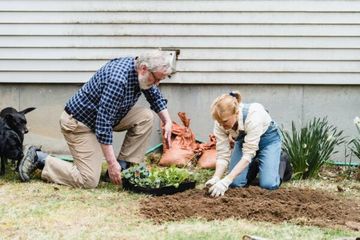
If you have aging parents, determining whether it's time for them to move can be challenging, or navigating the “when” part of this conversation. Here are some common concerns and tips to help you navigate this decision:
- Health and Safety: Look for signs of parents’ declining health such as balance issues, and safety risks in your parents' current home such as stairs, sloping yard, and difficulty using the tub or shower.
- Home Maintenance: Aging parents may struggle with maintaining their home themselves and feel the cost of paying professionals to do the maintenance or updating is too expensive. Consider discussing downsizing options with them to alleviate these burdens.
- Family Solidarity: Approach the topic with empathy and involve siblings to create a united front when discussing moving options with your parents. It’s common that aging parents wait too long to make the decision to move, which makes it harder when they can’t help as much as they would like. Decluttering can be overwhelming, especially when the adult children still have childhood memorabilia stored in the garage, attic or guest bedrooms.
- Staying in the Area vs Moving to a Different City: Aging parents can be excited about moving closer to adult children or grandchildren, but they might also get depressed at the idea of leaving the area they have called home for a number of years. And sometimes, one parent feels very differently than the other about moving out of the area. Approaching this conversation slowly can help. Showing them options in the new area, or explaining why they will like living in a different area can help them envision living in a new place. If they feel like they’re being encouraged to leave their home for the adult children’s convenience, then they will understandably be less open to the idea. A good agent can help with connecting you with a professional in any market to start the conversation about housing options there. You can advocate for your parents by talking to the real estate professional first and explaining where your family is in the move process. Many real estate agents are happy to start the conversation, knowing that the move may be a year or more away, or if your parents are considering more than 1 area.
Triangle Area Homes Available in 55+ Communities
Dear Amy,
My wife and I are retiring soon and looking to move to the Triangle area to be closer to our grandkids. We are avid golfers and like to keep active. We have heard about communities that cater to people like us. Can you explain the benefits of moving into an active adult community?

Let's explore the reasons why an active adult community might be the perfect choice for someone seeking a fun, yet relaxing lifestyle if they are 55 years or better:
- Low-Maintenance Living: A primary draw of active adult communities is the promise of low-maintenance living. Say goodbye to the hassles of yard work, exterior maintenance, and other household chores. These communities often offer services such as landscaping, exterior upkeep like gutter cleaning, and even recommended vendors for home repairs, allowing residents to spend more time enjoying life and less time worrying about maintenance tasks.
- Social Atmosphere: Active adult communities foster a vibrant social atmosphere where residents can connect with like-minded individuals who share similar interests and life experiences. Whether it's participating in organized activities, joining clubs and groups, or simply socializing with neighbors, these communities provide ample opportunities for residents to build meaningful relationships and create lasting memories.
- Working or Retired Homeowners: Some potential buyers of active adult homes assume that all residents are retired. The truth is that many people choose an active adult community and continue to work, or are quite busy with volunteer activities. As people are working more into their 60s and 70s, active adult communities can be an ideal fit because they can age in place but are not ready for a neighborhood full of people who aren’t working. And for those who are slowing down and working part-time, it is great to have the social opportunities and low maintenance while continuing to make an income and contribute in their career field or a small business owner or consultant.
- Abundance of Amenities: From state-of-the-art fitness centers and swimming pools to pickleball courts, walking trails, and community centers, active adult communities boast a wide array of amenities designed to cater to residents' diverse interests and hobbies. Whether you're looking to stay active, pursue a new hobby, or simply relax and unwind, these communities offer something for everyone.
- Age-Friendly Design: Active adult communities are typically designed with seniors' needs and preferences in mind. This may include features such as single-story floorplans, wider doorways, and step-free entrances to accommodate mobility aids and ensure ease of navigation throughout the community. Note, many active adult communities are not building homes that are 100% handicap or wheelchair accessible. If this is a need, please mention it to your buyers agent to make sure you select a community that will work for your needs.
- Sense of Community: Living in an active adult community fosters a strong sense of belonging and community spirit. Residents form tight-knit bonds with their neighbors, creating a supportive and inclusive environment where everyone looks out for one another and lends a helping hand when needed.
- Access to Lifestyle Programs and Activities: From fitness classes and educational seminars to social gatherings and cultural outings, active adult communities offer a wide range of lifestyle programs and activities designed to cater to residents' interests and preferences. Whether you're passionate about arts and crafts, enjoy exploring nature, or simply love socializing with friends, there's always something exciting happening in these communities.
Amy Shair's expertise is backed by numerous professional certifications, showcasing her commitment to excellence in real estate.

Dear Amy,
Do you have any tips for seniors who are planning on purchasing a 55+ home directly from the builder? The on-site agent makes the home appear almost too good to be true.

Keep in mind that active adult or 55+ age-restricted communities vary quite a bit. There are a few builders who specialize in developing these type of neighborhoods, but it’s important to remember a few things:
- Low-Maintenance Living: A primary draw of active adult communities is the promise of low-maintenance living. Say goodbye to the hassles of yard work, exterior maintenance, and other household chores. These communities often offer services such as landscaping, exterior upkeep like gutter cleaning, and even recommended vendors for home repairs, allowing residents to spend more time enjoying life and less time worrying about maintenance tasks.
- The Builder’s Rep Represents The Builder: If you are buying new construction, remember the builder reps do not represent you; they are employees or vendors of the builder. Even with doing a lot of your own research, purchasing from a builder without being represented by an expert local agent increases risk of ,aking an uninformed decision and not leveraging negotiation tactics. Your agent will give you the cons of one community and a particular home versus only the pros, so you make a good decision which one is right for you.
- Neighborhood Size Matters. Neighborhood size and amenities dictate the feel or vibe of these communities. Some smaller communities are 200-300, while the larger active adult communities are 1000 homes or more. Some communities have an indoor pool, while others only have an outdoor pool. We have 4 seasons here in NC, so if you want to swim or take water aerobics year round, you’ll want to choose a community with an indoor pool or near a swim center with an indoor pool. Outdoor community pools in our area are generally closed Labor Day through April or early May.
- Kids or no kids?: Some active adult communities are part of a larger development, which can be a plus if you have adult children who may live in one part of the community and be walking distance away. On the other hand, if you want to be around less children, this might not be for you.
- Building Phase Matters: Why buy in the middle or the end of a community versus buying in the first phases in the builder’s next community? For those buying at the beginning of the neighborhood, you should buy at a lower price since construction costs increase every year. The community amenities are often opened later in the development process, or are rolled out in phases. The builders promote what will be available when everything is in place, but you may not want to wait 1-3 years for amenities like the pool or clubhouse to be completed, even if the HOA dues are reduced until all amenities are in place.
- How unique do you want your property to be?: Customization of the home may be limited, even when you build in an active adult community. If you have special needs in terms of construction, or are used to building custom homes, building in an active adult community is different. The builders will have packages or options to select from, but will rarely deviate from their offerings. Regardless of how minor the request might seem, the larger builders aren’t able to accommodate special requests. An agent can make sure they ask all of those types of questions before you get into signing a contract and giving a nonrefundable deposit to the builder.
- Golf Carts: Some buyers want to have a golf cart to travel within the community, even if there is not a golf course in the neighborhood. Most of the active adult homes in our area have a 2 car garage and often do not have an extra area in the garage to park a golf cart.
Do you have a Real Estate question for Amy?




